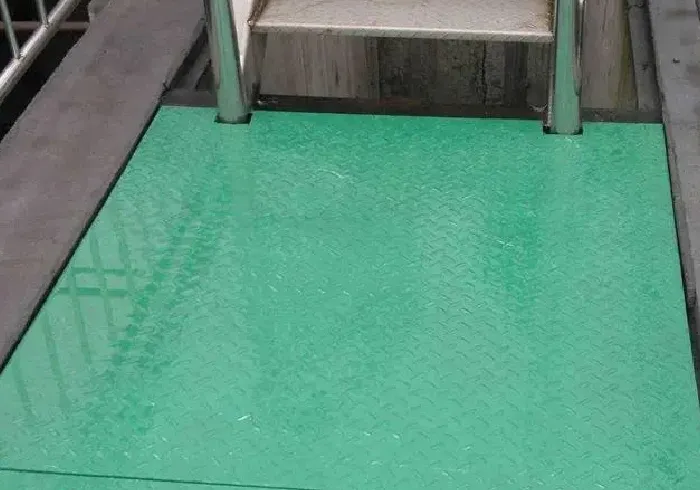loading...
- No. 9, Xingyuan South Street, Dongwaihuan Road, Zaoqiang County, Hengshui, Hebei, China
- admin@zjcomposites.com
- +86 15097380338
- Welcome to visit our website!
water treatment systems for well water
Effective Water Treatment Systems for Well Water
Access to clean and safe drinking water is a fundamental human right, yet millions of people rely on well water for their daily needs. While well water can be a reliable source of potable water, it often contains pollutants and contaminants that must be treated through appropriate water treatment systems. This article discusses various treatment options available for well water, their importance, and how to choose the right system for your needs.
Understanding Water Quality Concerns
Well water quality can vary significantly based on geographical location, the aquifer from which the water is sourced, and potential contamination sources nearby. Common contaminants found in well water include bacteria (such as E. coli), heavy metals (like lead and arsenic), nitrates, sulfates, sediments, and organic compounds. Therefore, it is crucial for well water users to conduct regular water testing to measure these parameters and help identify the appropriate treatment solution.
Types of Water Treatment Systems
There are several water treatment systems available, each suited for specific types of contaminants. Here are some of the most common methods
1. Filtration Systems - Sand Filters Effective in removing sediments and larger particles, sand filters can be installed above or below ground. They are simple to maintain and operate well in filtering out suspended solids. - Activated Carbon Filters These filters are specifically designed to remove chlorine, volatile organic compounds (VOCs), and certain pesticides. Activated carbon systems improve water taste and odor, making them popular choice for many homeowners. - Reverse Osmosis (RO) Systems Known for their ability to effectively remove a wide range of contaminants, including heavy metals and dissolved solids, RO systems utilize a semipermeable membrane to filter water. They are particularly useful for areas with high salinity or fluoride levels.
2. Disinfection Methods - UV (Ultraviolet) Treatment UV treatment effectively kills bacteria, viruses, and other microorganisms without using chemicals. It is a popular choice for households relying on well water, as it offers an efficient way to ensure microbiological safety. - Chlorination The introduction of chlorine to water can reduce bacterial content and eliminate pathogens. However, this method requires careful monitoring and may result in by-products that must be addressed.
3. Water Softeners - In areas with hard water, well water may contain high levels of calcium and magnesium. Water softeners use ion exchange to remove these minerals, improving water quality and prolonging the lifespan of plumbing fixtures and appliances.
4. Iron Removal Systems - If well water is high in iron, it can lead to discoloration and metallic taste. Specialized iron removal systems, including oxidation filters and acid-neutralizing systems, are essential to mitigate these issues.
water treatment systems for well water

Choosing the Right System
Selecting the appropriate water treatment system for your well water involves several considerations
- Water Quality Testing Begin with a comprehensive water test to identify specific contaminants present in your well water. This analysis will guide your equipment selection. - Budget Consider your budget not only for the initial installation but also for ongoing maintenance and operational costs. Some systems may require replacement filters or ongoing chemical additions which can add to long-term expenses.
- Space and Installation Assess the space available in your home for installing the systems. Some treatment solutions might require extensive plumbing modifications or additional space.
- Local Regulations It’s essential to understand local water quality regulations and recommendations. Some regions might have specific guidelines regarding the treatment of well water.
Maintenance and Monitoring
Once a treatment system is installed, ongoing maintenance and monitoring are crucial. Regularly test your water to ensure that the treatment system continues to function effectively. Change filters as recommended and keep an eye on any changes in taste, smell, or appearance of the water.
Conclusion
Investing in a reliable water treatment system is crucial for anyone relying on well water. With various options available, it is important to choose a solution tailored to the specific needs of your water quality. By prioritizing water safety and quality, you can ensure access to clean, safe, and enjoyable drinking water for you and your family.
-
The Rise of FRP Profiles: Strong, Lightweight, and Built to LastNewsJul.14,2025
-
SMC Panel Tanks: A Modern Water Storage Solution for All EnvironmentsNewsJul.14,2025
-
GRP Grating: A Modern Solution for Safe and Durable Access SystemsNewsJul.14,2025
-
Galvanized Steel Water Tanks: Durable, Reliable, and Ready for UseNewsJul.14,2025
-
FRP Mini Mesh Grating: The Safer, Smarter Flooring SolutionNewsJul.14,2025
-
Exploring FRP Vessels: Durable Solutions for Modern Fluid HandlingNewsJul.14,2025
-
GRP Structures: The Future of Lightweight, High-Performance EngineeringNewsJun.20,2025
